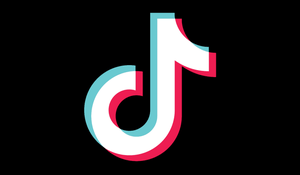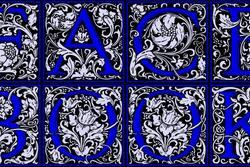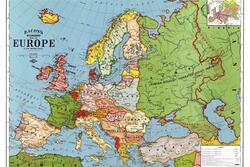Is TikTok "Bad for the Jews"?
For a few months, my friends have been hounding me to download TikTok. After weeks of standing strong, last month I caved. I had been reluctant to join TikTok because the app is under a national security probe over its alleged ties to the Chinese government. Various American politicians, including Chuck Schumer and Marco Rubio, have expressed concerns that TikTok may be used to influence elections. But, the allure of the sketches and clips that my friends kept talking about was too strong, and I downloaded the app anyway.
Created in 2017, TikTok is an app that allows anyone to upload and share videos between three seconds and a minute long. Due to the brevity of the videos, which range from simple lip syncs of hit songs to elaborate comedy sketches, they tend to be less nuanced than media on platforms like YouTube. When it comes to addressing controversial topics and big ideas like antisemitism, this lack of subtlety creates a problem.
Much of the Jewish content on TikTok is quite shallow and recycles tired stereotypes about Jewish people and culture; it’s not hard to find videos by Jewish users that make fun of popular Jewish names or list off why they fit Jewish stereotypes. Many videos that use the hashtag #Jewish or #Jew are harmless, but, troublingly, some videos make light of antisemitic tropes.
On TikTok, there are quite a few videos by young Jewish people that seem to poke fun at stereotypes about Jews having or begging for money and wielding a lot of power. For example, a Jewish user who has over 80,000 followers posted a TikTok called “Yes we hold the world’s wealth.” The content? The user throwing money while the caption “Yes I’m Jewish” displays over his head. User JonKe (@jonkayjay), who has over 20,000 followers, made a video called “Yes I am Jewish,” in which he wears a yarmulke and begs for coins. The caption “Give me the pennies” hovers just above his head.
In both videos, these TikTok stars make it clear that they are Jewish. And while celebrating one’s heritage is a good thing, these videos uncritically reinforce and spread long-held antisemitic stereotypes about Jewish people and money. With rising violent anitsemitism in the United States, I struggle to understand why anyone would risk promoting harmful antisemitic stereotypes on a platform where anyone, including a white supremacist, could see them.
My concerns about white supremacists on TikTok are unfortunately not unfounded. In the Motherboard article “TikTok Has A Nazi Problem,” Joseph Cox writes that white supremacists use the platform to call for “violence against people of color and Jews,” distribute “neo-Nazi propaganda,” and advocate for a final solution. Some accounts express support for “Atomwaffen, a violent neo-Nazi group linked to the murders of several Jewish people” in the United States.
We can safely assume that neo-Nazis are familiar with hashtags like #Jew and #Jewish on the platform. This is not to say that Jews should limit their presence on TikTok out of fear, but rather that videos poking fun at Jewish stereotypes should be done carefully, so that we are not miseducating people with antisemitic tropes, playing into neo-Nazi narratives, or trafficking in stereotypes without nuance. While TikTok is definitely not uniquely problematic, the app is rising in popularity among young teens. As with any influential form of media, it is important to realize the ramifications that TikTok has on young people, including myself.
Although content by Jewish creators playing into antisemitic stereotypes troubles me, the onus for managing the neo-Nazi presence on the app is on TikTok. Like Twitter, Facebook, and Instagram (and others), TikTok has failed to adequately address the presence of virulent white nationalists on its platform. (In a statement to Huffpost, a TikTok representative said that the app is continuing to enhance existing safety measures and “roll out further protections” to confront white supremacy and other forms of hatred on the platform.) As a Jew, I find this frustrating and scary. It needs to change.
Despite my heavy criticism, not all the Jewish content on TikTok is “bad for the Jews.” Positive Jewish content on TikTok can provide representation and humor—it makes me feel seen. Although its subject matter is dark, a video by Daniel Cowan (@danielcowan_) cracks me up because of how accurate it is. In the TikTok, Cowan depicts exactly how it feels to be the only Jew in class: The video opens on a classroom full of students watching a Holocaust film. When a Jewish character in the movie comes on screen, the entire class turns to look at the Jewish student. While neo-Nazis can potentially twist any Jewish content into something horrible, this video does not evoke any antisemitic stereotypes. This kind of cringeworthy situation is definitely one I have been in, so it’s hilarious and relatable to see a video poking fun at it.
After spending some time on the app, I’ve decided I’m not a fan of TikTok and do not see myself using it in the future. It should not be up to Jews to censor our own content to shield ourselves from antisemitic threats, but it is up to all of us to think carefully about the content we post and the dangerous tropes we invoke. If I do ever decide to reinstall the app, I hope to see smart, funny, satirical Jewish content that challenges antisemitic stereotypes rather than mistakenly reinforcing them for laughs.








It's not even anti-semitic if they are not even Jewish.
Why shouldn't we use tiktok massively to defend Jews from anti-semitic memes?
Rather than criticizing and ignoring -it is never too early to engage in a medium for teens and millennials to provide healthy Jewish content.